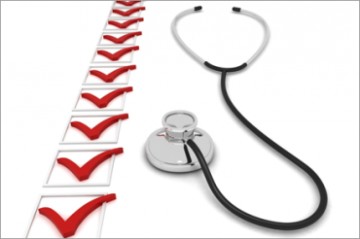How Central Mass Can Help Fight Cancer
Saturday, September 29, 2012

Officials are hoping to round up a few hundred volunteers from the Worcester area for the landmark Cancer Prevention Study-3 (CPS-3) during the second annual Making Strides Against Breast Cancer Walk at Elm Park on Sunday, October 21.
"We've all unfortunately been touched by cancer," said Janet McGrail, Vice-President for Health Initiatives at the American Cancer Society in Massachusetts.
"This is something we all can do to help really get to the bottom of causes and behavior risks that contribute to cancer."
How to Get Involved
The study seeks individuals between the ages of 30 and 65, who have never been diagnosed with cancer, to participate in the 20 to 30 year study. All that organizers ask is that they fill out a brief questionnaire, provide a waist measurement and seven teaspoons of blood, and then fill out follow-up surveys every two to three years to help researchers track how lifestyles and behaviors affect the development of cancer.
"We urge people to get out there and donate a tiny bit of blood and fill out the questionnaire and help us fund researchers and get things moving, said Debra Aharonian, manager of ACS's Hope Lodge in Worcester, which offers support and a free place to stay for cancer patients traveling to the area for treatment.
"It's a few minutes of their time to help save lives."
Aharonian has already taken a few minutes of her own time to enroll as a participant in CPS-3.
"Not only do I work for the American Cancer Society and volunteer for them, but I've donated my blood as well," she said.

A History of Results

In the past, the American Cancer Society's long-term studies have made major contributions to the body of knowledge surrounding the disease. The original CPS, conducted in the 1950s, helped link tobacco usage to lung cancer. In the 1970s and '80s, CPS-2 explored the connections between air pollution, obesity, diet and exercise and how they contribute to the development of different cancers.
With CPS-3, participants will be able to submit their follow-up surveys online for the first time.
McGrail said interested parties can sign up to participate online and set up an appointment to have their baseline health status recorded and blood taken. But at next month's breast cancer walk, they can just drop in and sign up on the spot.
"We are very interested in reaching across the state of Massachusetts to make sure we have a good sampling," McGrail said, adding that officials hope to recruit at least 150 participants during the Worcester event.
According to the Massachusetts Department of Health, there were an average of 36,283 cancer cases and 13,160 cancer deaths annually from 2004 through 2008.
"One of the things Massachusetts excels in is detection," McGrail said.
"The good news is that people are getting diagnosed earlier. Success rates of the treatment are much better when you detect it at earlier stages."
Related Articles
- UMass Medical School Receives Major Gift for ALS Research
- Harr Motor Group Donates $25,000 for UMass Cancer Walk
- NEW: Mass. First to Create Statewide Health Information Database
- NEW: Worcester Launches New Health Initiative
- Worcester Aims to be Healthiest City in New England
- NEW: UMass Researcher Wins Janssen Award




Follow us on Pinterest Google + Facebook Twitter See It Read It